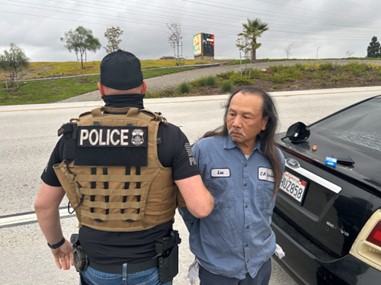A San Francisco federal judge overseeing a bench trial over California's claims that President Donald Trump unlawfully deployed military troops in the state dug into a U.S. Army commander's testimony Monday that soldiers were sent to help enforce immigration laws, even when the military's own assessment showed a low risk of violence or damage.
A Nevada federal court has rejected a ranching association's latest attempt to claim immunity from a proposed class action accusing the association and its members of conspiring to suppress the wages of sheepherders who are working on temporary visas.
A New Jersey federal judge rejected Mahmoud Khalil's second bid to block the Trump administration from deporting him on an alleged paperwork violation, ruling he relied upon the same arguments and evidence he raised or could have raised the first time.
The Trump administration reversed a Biden-era policy aimed at protecting some children of temporary visa holders from losing their status and facing self-deportation when they turn 21.
HIDALGO, Texas—U.S. Customs and Border Protection, Office of Field Operations officers at the Hidalgo International Bridge, intercepted $647,000 worth of alleged cocaine concealed within a vehicle. “As this latest interception clearly…
LAREDO, Texas—U.S. Customs and Border Protection, Office of Field Operations officers at the Laredo Port of Entry seized methamphetamine that totaled over $433,000 in street value.“I commend our CBP officers for their exceptional vigilance and…
Attorneys have numerous pathways to pursue misconduct claims against U.S. Immigration and Customs Enforcement agents in the Eleventh Circuit, and they need not wait for the court to correct its misinterpretation of a Federal Tort Claims Act exception, says Lauren Bonds at the National Police Accountability Project.
As attorneys increasingly rely on generative artificial intelligence for legal research, courts should consider expanding online quality control programs to flag potential hallucinations — permitting counsel to correct mistakes and sparing judges the burden of imposing sanctions, say attorneys at Lankler Siffert & Wohl and Connors.
ALEXANDRIA BAY, N.Y. – U.S. Customs and Border Protection (CBP) officers at the Alexandria Bay Port of Entry seized an illegally possessed firearm, resulting in the arrest of a previously convicted felon.On August 8, CBP officers encountered a…



